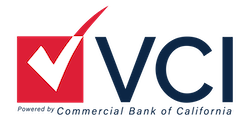
Why You Should Consider Recurring Billing
Recurring billing is a convenient way for customers to pay for goods or services received. It also allows businesses to reduce invoicing costs and optimize cash flow, among several other benefits.
The following information will discuss what recurring billing is, what it involves, and the benefits that it can yield to consumers and merchants alike.
What is Recurring Billing?
Recurring billing is an automated payment process in which a customer or client is charged for goods or services purchased at regular, predefined intervals (weekly, monthly, bimonthly, and so forth). These recurring payments require initial permission from the customer, and will generally continue until the customer cancels the subscription or service.
Recurring billing typically involves one of two payment methods: credit cards or ACH (automated clearing house) transactions. Both methods are valid for recurring payment purposes. However, ACH transactions are generally more secure and less expensive than payments by credit card.
Benefits to Customers
The recurring billing process offers a number of benefits to customers. These include the following advantages:
- Convenience. Paying bills takes time, and is often a tedious process (especially when dealing with paper checks that go through the mail). Since electronic recurring payments charge automatically, they offer maximum convenience for consumers that have a lot on their plate and not a lot of time to spare.
- No late payments. The average consumer has a lot on his or her mind on any given day. It’s all too easy to forget about an outstanding bill, and end up paying a late fee. Once a recurring payment schedule has been set up, there’s no need to worry about late or missed payments. As long as the money is in the account, the bill will get paid.
- Savings on other costs. There are no costs related to checkbooks, envelopes, stamps, or any other physical supplies.
- Eco-friendliness. Since recurring credit card and ACH payments don’t require any paper products, they actually contribute to environmental sustainability.
Benefits to Merchants
Recurring billing also offers several advantages for merchants as well. These include:
- Improved customer retention. Since most recurring payment agreements require the customer to proactively cancel his/her subscription, they actually promote customer retention. After all, why change something that’s working?
- Reduced invoicing costs. Many businesses have to dedicate significant time and payroll resources to the reception, validation, and recording of invoices. Recurring payments help to simplify that process and cut down on staffing costs at the same time.
- Enhanced cash flow. When you know that you’re receiving a payment for a certain amount at a certain time each month, it’s much easier to budget your expenses and allocate your resources in an effective way.
- Optimized security. Automatic payments help companies to protect sensitive customer information. For example, without a paper trail left behind by the payment, there is much less opportunity for the duplication and/or circulation of private customer information (like credit card numbers, bank account information, and so on).
Summary
As discussed above, there are many advantages that a recurring billing process can offer, for both customers and businesses. Of course, recurring payments must be processed via a secure system in order for both sides to have peace of mind. It is imperative that company executives and business owners partner with a reputable payment processing vendor that can handle all of their recurring billing needs.
If you’d like to learn more about how VeriCheck guarantees fast, flexible and secure check and ACH payment processing (which includes recurring billing) then reach out to our team of friendly experts today for further information.
